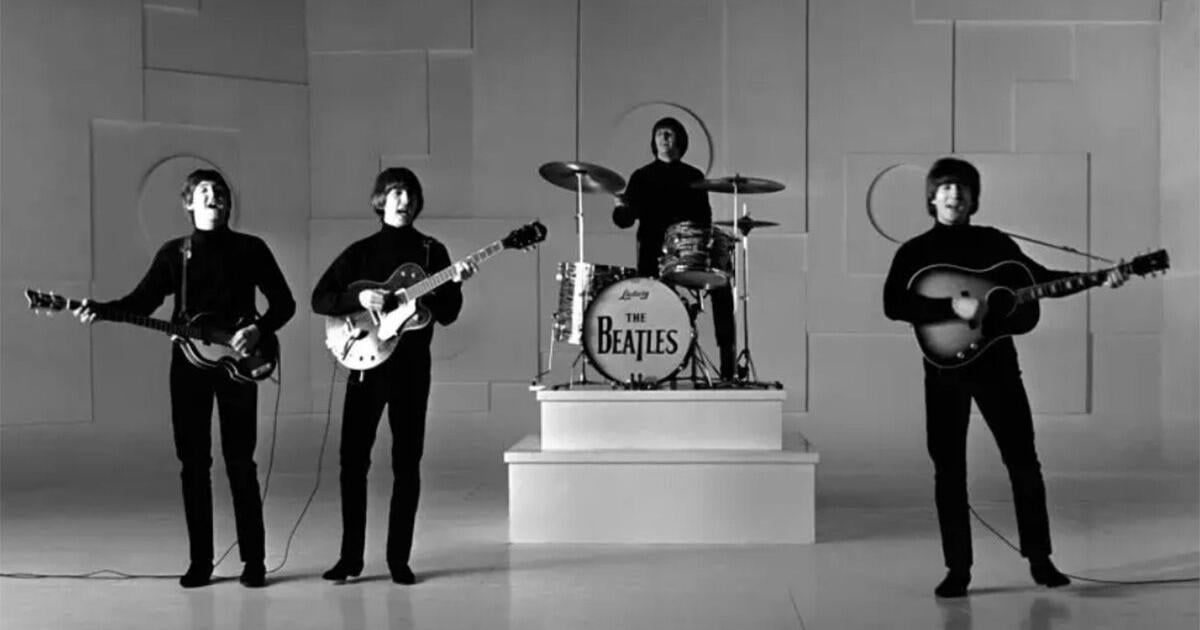Before Retro Roundup gets into the subject at hand, a note about new releases in surround sound on streaming services as heard on headphones, mine being the Sony WH-CH520:
I was a little skeptical about Apple Music lately, because their Dolby Atmos mix of the Beatles’ Revolver didn’t sound especially surround-y recently, while the same album on Amazon Music was great. Now I think it could have been a glitch.
That’s because I just heard two new Dolby Atmos releases, Billy Joel’s late 1980s album Storm Front and Retrospective, an abridged version of the compilation of the same name of the solo career of Bryan Ferry, most famous for his stint in the 1970s-1980s group Roxy Music.
In a word, both have absolutely superb surround mixes, with lots of panning and great sound. Especially notable is the middle section of Ferry’s hit Slave To Love. Some of the mixes achieve the difficult task of making the listener believe some sounds are coming from behind their heads. Both are well worth a listen.
And now to our latest subject: There are a great deal of famous songs that have been played on the radio ad nauseum, and included on compilations. But some of those versions are not the actual hit versions.
Devoted Beatle fans can skip this and the subsequent paragraph, as they already know this stuff. The version of Love Me Do on most hit collections is the album version from Please Please Me with session man Andy White on drums, but the original UK hit version with Ringo on drums was largely ignored on compilations (only seeing release in the U.S. in 1980). Bizarrely, though, that inferior UK single version is the lead track (and now in digitally extracted stereo) on the new remixed 1962-1966 Red Album.
Also, the hit version of the song Help!, as heard on the original single, has a poorly recorded and different lead vocal for some reason- this is also the version heard on the mono LPs of the Help! album. Those who compile Beatle best-ofs actually correct to include the stereo album version as it has a stronger and superior Lennon lead vocal.
Beatles devotees can now continue reading.
In Beach Boys land, there was a time when the album rather than the hit single of the 1963 song Be True To Your School was the best known version, because someone at Capitol Records included the very different album version on the massive 1974 hit compilation album Endless Summer. This, to me, actually made sense, as the album version is in stereo and less dorky than the hit version, which I didn’t hear until it was included on an album of the same name that included songs that were left off 1970s-1980s reissues of 1960s Beach Boys albums. Now, the dorky version is the one included on compilations.
One thing that surprised me is that the version of Barbra Streisand’s massive hit The Way We Were that is heard on the radio and included on countless compilations is not the hit version. As I discovered not long ago on YouTube, the actual version that people bought on 45 RPM has a slightly different vocal take. I’m guessing Streisand didn’t like that version and preferred the album take in terms of musical posterity.
The group Kiss is fairly notorious for releasing and then remixing several of their more famous songs. The song Detroit Rock City has been released in its longer album version, an edit and remix and re-edit on the Double Platinum compilation and a further remix (and re-edit to correct a factual error regarding an interstate highway) on. reimagined Destroyer album. But the actual hit version was not heard by most fans until the deluxe version of the Destroyer album came out a couple of years ago. And for good reason, as it’s a ham handed and bizarre edit that seems like it was executed by people who had just experienced one of the cocaine benders that used to take place amongst those at Casablanca Records.
The Carpenters version of Ticket To Ride was released as a mono single in 1970, but the version most people know was a 1973 re-recording with a whole new Karen Carpenter vocal, recorded for their first hits compilation. And that’s a good thing, because the original version was thinly produced and Karen’s vocal was a whole lot less sophisticated, verging on unpleasant.
In general, in conclusion, many lesser known hit versions are not commonly heard because they were edits, and compilations of greatest hits albums have generally included the full-length versions. But there are an increasing amount of compilations that not only feature the edits, but the mono mixes — even some of stereo songs that were either summed down to mono or given dedicated mono mixes released and released for airplay on AM radio stations. The latter is especially true of some 1970s Columbia Records albums re-released with bonus tracks on Sony.
At least listeners are now getting to hear what those in the day first heard on the radio. But they’re still not the best known versions.





